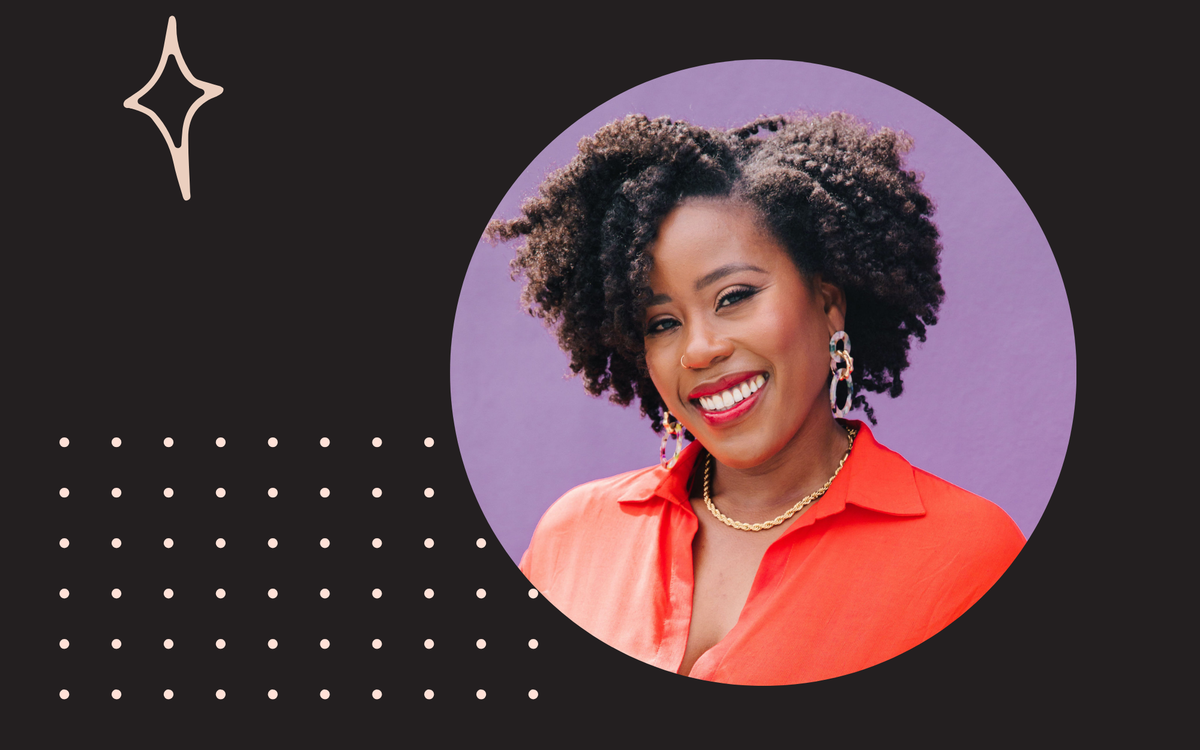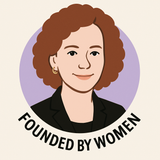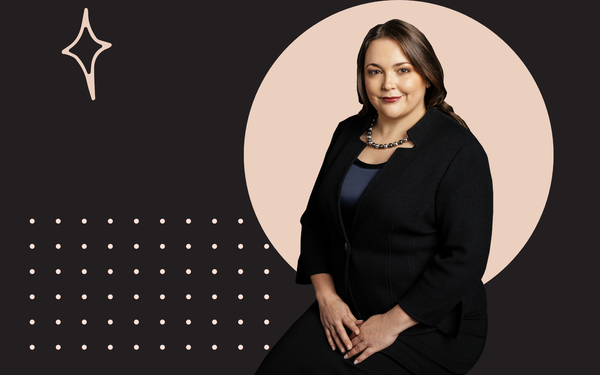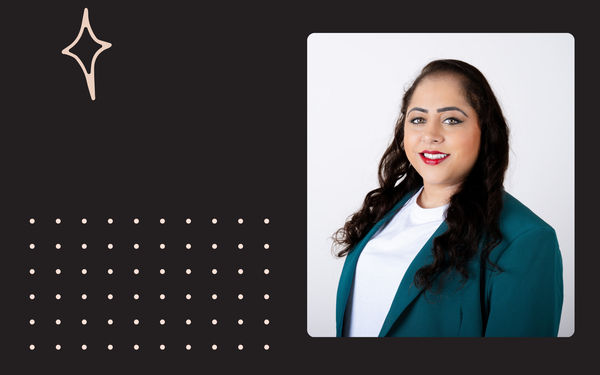From University Counseling Center to 1.5 Million Views: How Dr. Adia Gooden Built a Business on Unconditional Self-Worth

Dr. Adia Gooden knows what it feels like to tie your worth to achievement. She earned her bachelor's degree in psychology from Stanford University and her Ph.D. in Clinical Community Psychology from DePaul University. She spent four years as a staff psychologist at the University of Chicago Student Counseling Service, providing therapy to incredibly high-achieving students who struggled to feel worthy despite their accomplishments. She was particularly focused on supporting students from underrepresented groups.
But she also knew that pain personally. Despite a seemingly perfect life growing up and an impressive academic trajectory, she struggled with feelings of unworthiness for as long as she could remember. Everything changed when she stopped hustling to prove her worth and turned inward to connect to the true source of her value.
In 2018, she gave a TEDx talk called "Cultivating Unconditional Self-Worth" that now has over 1.5 million views. That talk kicked off her journey to leave academia and launch Unconditionally Worthy, Co., where she helps high-achieving professional women—especially women of color—embrace their worth and reclaim their greatness. She's a licensed clinical psychologist with over 16 years of experience, hosts the Unconditionally Worthy podcast, co-authored the Cambridge University Press book "Promoting Black Women's Mental Health: What Practitioners Should Know and Do," and works with clients through individual coaching, group programs, and workshops for companies and conferences.
Her work addresses a crisis she sees as a root cause of mental illness: pervasive low self-worth. According to the World Health Organization, depression is the leading cause of ill-health and disability worldwide, and Dr. Adia believes that helping people connect to their unconditional self-worth is the key to breaking free from anxiety, imposter syndrome, and the exhausting cycle of proving themselves through external achievements.
In this conversation, Dr. Adia shares why she left the academic track to reach a larger audience, how she balances different platforms to meet people at various stages of their self-worth journey, and how her own struggles with perfectionism and imposter syndrome shaped the way she prices her services, sets boundaries, and makes strategic decisions about growth.
Q1. You left a prestigious academic track to launch Unconditionally Worthy, Co., transitioning from university counseling centers to entrepreneurship. What made you realize that building your own business was the right path to amplify your message about self-worth, especially for high-achieving women of color?
I made the decision to leave academia because I knew I wanted to share my message of unconditional self-worth with a larger audience. After years of being in academia, I understood that my desire to speak to and impact the public was not going to be valued or supported in the way I wanted it to be. Pursuing entrepreneurship has given me the freedom to prioritize what I think is most important related to my mission of helping everyone to know that they are unconditionally worthy. Further, it has enabled me to support high achieving women of color in creative ways without needing to answer to systems that might question me for prioritizing women of color.
Q2. Your TEDx talk "Cultivating Unconditional Self-Worth" has over 1 million views, you host the Unconditionally Worthy podcast, co-authored a Cambridge University Press book, and work with clients one-on-one. How do you balance these different platforms and delivery methods to reach people at various stages of their self-worth journey? What's been most effective in creating sustainable change?
The content that I share through online platforms (including my TEDx Talk, podcast and now my new Reclaiming Ourselves Substack) is meant to make people think and consider their relationship to themselves and how they engage with other people and the world. The talks and workshops I give for companies and conferences help people dig more deeply into these ideas and apply them to their lives. Finally, working with me individually through coaching or therapy enables me to guide people step-by-step through the process of making lasting changes in their lives.
Q3. As someone who personally struggled with tying self-worth to achievement during graduate school, you now coach high-achieving professionals through this same pattern. How has your own experience with imposter syndrome and perfectionism shaped the way you build your business—from pricing your services to setting boundaries to making strategic decisions about growth?
When I started my business I was working overtime to try to get everything off the ground and make it perfect. When I recognized this, I made some intentional shifts to set boundaries around my work so that I could make space for rest and play. My understanding of how perfectionism can lead to overworking and never being satisfied with what we produce has helped me to set realistic goals and focus on the process. I have certainly felt like an imposter at times especially when setting prices for my services. My understanding of how imposter syndrome functions has helped me to remember why I am qualified to help people and to focus on how I can impact others instead of trying to prove myself.
Are you a woman leader with an inspiring journey to tell? Founded by Women is on a mission to elevate and amplify the voices of women making an impact.
If you're breaking barriers, driving change, or paving the way for others, we’d love to feature your story. Get in touch with us today!
👉 hi@foundedbywomen.org


